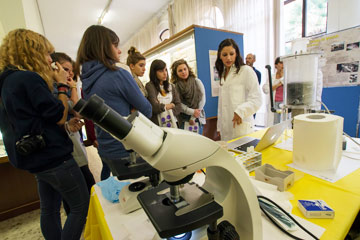Intrauterine Growth Restriction (IUGR) is the failure of the fetus to reach its genetically determined potential growth, and may be caused by maternal, placental, fetal or external factors. This condition brings increased morbidity and mortality of the fetus, as well as cerebral or metabolic problems later in life.
The pathological condition has to be distinguished from the general SGA (Small for Gestational Age) state, i.e. the small size fetus condition (less than the 10th centil) which can be not associated with pathological features. The fetus growth is monitored during the pregnancy assessing its weight through ecographic measurements. A normal growth is expressed by a sigmoidal weight increasing profile, suddenly blocked when a diseased state emerges. A recent and useful tool for assessing blood flux in fetus is eco-doppler. Moreover cardiotocography can assess the fetus heart beat. Because no therapy at present has shown to be significantly useful to improve placental function, these tools are devoted to assess the appropriate time for delivery, in order to avoid fetal damages or death in a hostile situation, but late enough to avoid the effects of prematurity.
The purpose of this project is to investigate by proteomics analysis the differential protein expression levels in Umbilical cord serum and amniotic fluid in IUGR, to hopefully producing information on the causes and mechanisms of prenatal disorders and revealing possible markers for postnatal complications and disease progression. Moreover, new markers for precision and accuracy improvement of damage timing are needed, in order to assess eventual responsibilities of a not proper obstetrical treatment.







